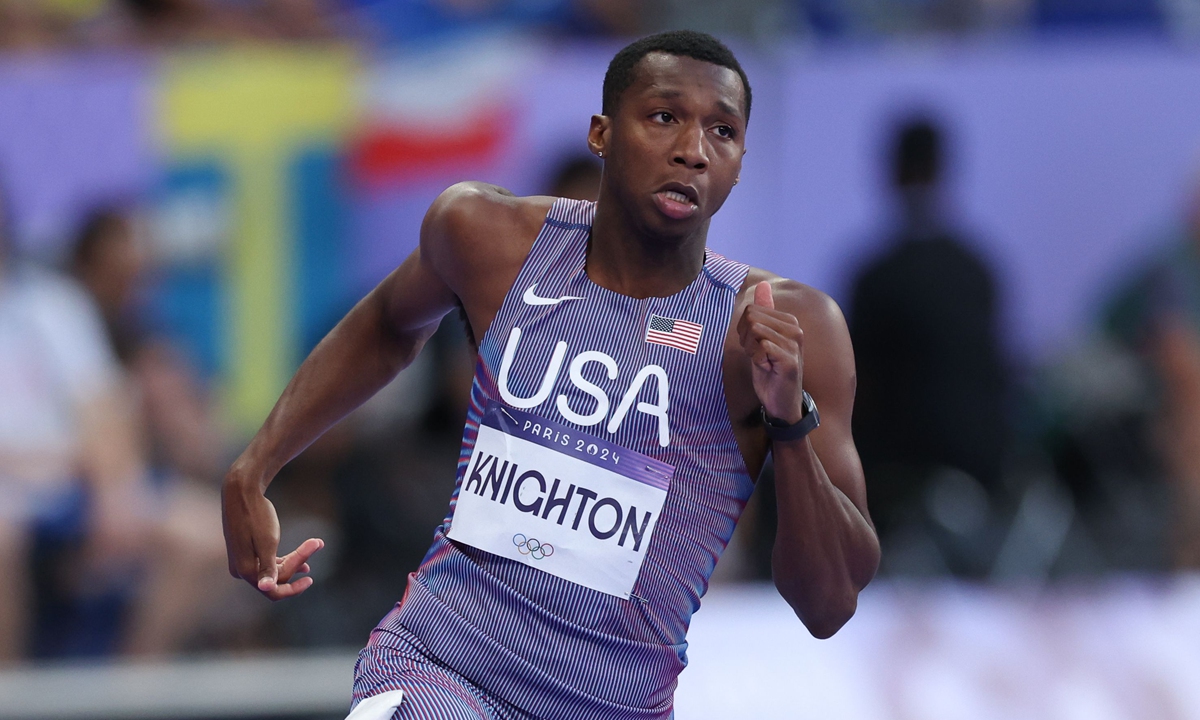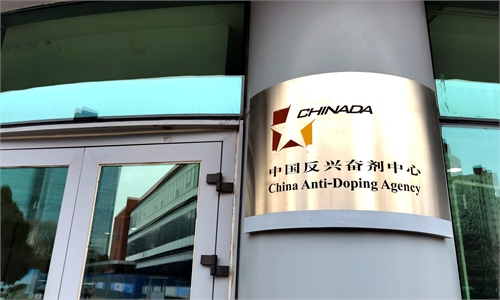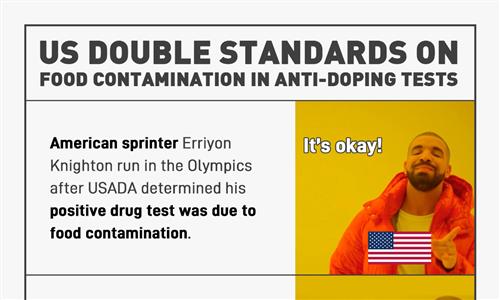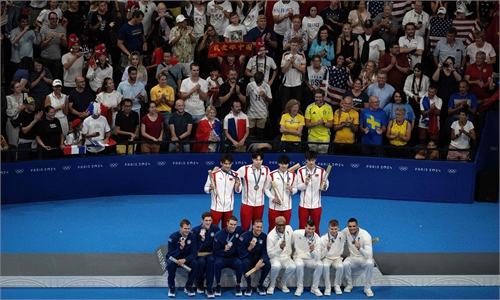Doubts over doping of American Olympic sprinter cannot be left unanswered: Global Times editorial

Erriyon Knighton of US wins his heat in the men's 200m Round 1 at the Paris 2024 Olympic Games on August 5, 2024. Photo: IC
There are many lingering doubts over the doping case of American Olympic sprinter Erriyon Knighton, which are causing increasingly widespread concerns. We believe that these doubts need a clearer answer and should not be left unanswered. It's necessary to strictly check whether American athletes use doping through various means, such as publishing sample concentration, providing relevant evidence and conducting third-party testing. At the same time, stricter inspections should be implemented for US track and field athletes participating in the Paris Olympics to ensure the fairness of Olympic events and to restore a clean Olympic venue to the world.
According to the US Anti-Doping Agency (USADA), Knighton tested positive for the performance enhancer trenbolone during an out-of-competition test on March 26. An arbitration panel determined that the substance came from contaminated meat, and therefore decided not to impose a ban on him. However, trenbolone is not a common contaminant. It can enhance power, but it also has serious side effects. Therefore, many countries have banned the use of trenbolone in food animals. The World Anti-Doping Agency (WADA) has listed it as a non-specified substance. In recent years, there have been hundreds of positive cases of trenbolone detected around the world, and most of them were punished based on a four-year ban. Why was Knighton exceptional? How did such a small probability event "happen" to occur to Knighton?
In particular, in the Knighton case, all investigation results came from USADA alone, and their authenticity has yet to be verified by WADA. It should be particularly pointed out that Knighton's "statement of innocence" has been withdrawn from USADA's official website. Also withdrawn are statements and reports on his past faultless cases. This series of strange actions will inevitably trigger speculations, and therefore USADA needs to respond to the outside world's doubts and concerns about all aspects of the whole incident. Knighton, as a highly suspect player, should also be subject to stricter anti-doping supervision.
For a long time, due to the hegemonic attitude of the US in the field of anti-doping - I can only check you, but you are not allowed to check me - its domestic anti-doping working procedures and testing standards are uneven, and its handling of doping by American athletes has also been extremely opaque, forming a huge sports black box. WADA President Witold Banka previously stated directly that up to 90 percent of American athletes, including professional and college athletes, do not compete under the World Anti-Doping Code. People have every reason to suspect that the USADA is negligent in supervising drug abuse among domestic athletes, or even intentionally covering it up.
Let's take the recent example of Michael Phelps, who said he is losing faith in WADA at the US Congress. Phelps' drug scandal in 2009 shocked the world. However, US authorities seemed completely unaware of the situation until a British media outlet published photos, forcing Phelps to admit to drug use and publicly apologize. According to regulations, Phelps should have been banned for two to four years, but the USA Swimming lightly addressed the matter with a mere three-month suspension. This incident is reminiscent of American track and field athlete Carl Lewis, who also prided himself as an anti-doping advocate and won the men's 100 meters gold medal at the 1988 Olympics. In 2003, under the revelations of an American doctor, Lewis admitted that he had failed three drug tests during the US team trials, but the US Olympic and Paralympic Committee turned a blind eye to it.
Past cases riddled with loopholes indicate that relying solely on the self-regulation of relevant authorities is insufficient to convince the public of the integrity of American athletes. Particularly, if one follows the logic that "those with the best performances should be scrutinized the most," then in fields like track and field and swimming, where the US has long held dominance, American athletes should indeed be subject to intense scrutiny. Accepting oversight from WADA, International Testing Agency, World Athletics and other relevant international organizations is an effective way to prove whether American gold medals are clean or not.
At the same time, there is suspicion that American athletes might be abusing "therapeutic use exemptions" (TUEs) by falsely claiming to have conditions such as asthma or ADHD to "legally" take banned substances. According to a report by the BBC, the Cycling Independent Reform Commission stated in 2015 that the abuse of TUEs is "a significant problem," and "90 percent of the peloton was doping." Materials previously exposed reveal that American athletes top the list of those granted exemptions. Whether there is any wrongdoing involved and whether these claims by athletes are legitimate also require external supervision and review.
The US often talks about rules on international occasions, but has two sets of rules for others and itself. The same is true on anti-doping issues. Although the USADA is a signatory to the World Anti-Doping Code, the four major domestic leagues in the US are not governed by the World Anti-Doping Code at all, resulting in that the penalties for athletes who violate doping regulations do not comply with internationally accepted standards.
People's intuitive feeling is that the US often uses its own measures to throw mud at other countries, especially at those foreign athletes who compete with American athletes, and "pre-emptively" trip them up. However, it leaves its own athletes who violate the rules unchecked.
For this reason, the US' investigation into Knighton's positive doping test is hard to trust. As a major sports nation, the US should lead by example in anti-doping efforts. Whether Knighton or any other American athlete used performance-enhancing drugs should not be solely determined by the US. The issue should be handled by more authoritative world anti-doping organizations.



